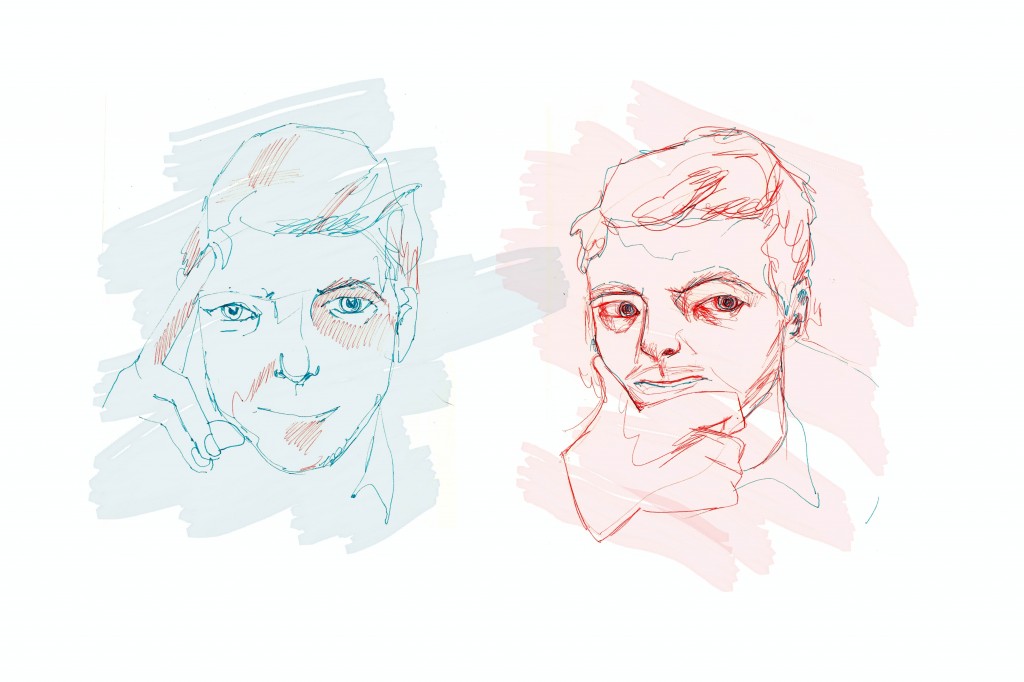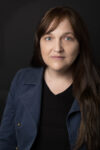People say there’s no accounting for taste and those who hear it nod their heads in agreement, but there’s no way taste cannot be accounted for, and in fact the statement there’s no accounting for taste undermines everything we’re put on Earth to do, especially if some of our time on this planet has ever involved creative writing workshops, which are collaborative attempts to account for taste, to improve a writer’s writing by pointing out moist spots, tasteless bits, unclear slip-ups that could be improved, certain underdeveloped thematic and syntactical opportunities, like little stubs growing from the body of a talking tree, also known as an Ent in Tolkien, and Ents want their stubby little arms to grow so they can hug themselves or else they want their stubby little arms cut off and the nubs sanded flat, they want their stubby little limbs extended so they can join hands with other limbs of their enormous talking tree body or else they want the limb removed. So often stories are covered in stubby limbs that don’t take hold of each others’ hands, and so they seem like deformed talking trees instead of self-hugging talking trees and the latter is what workshops are trying to do, I suppose, it’s what any good critical talk is trying to do, point out what’s underdeveloped, how something might have been better, so when you start talking about improving the self-hugging capacities of talking trees you’re recognizing an ideal all stories are trying to reach, a perfect form existing in the minds of readers. It doesn’t matter if the story is conventional or not in form or content, what matters is the sense that the story is coming close to that glittering city in the imagination of readers, and when someone gives someone else constructive criticism on a story they’re trying to help the story achieve its ideal form and become not something it’s not and never will be but optimized, an individual story existing in the world of stories that includes masterpieces that can be arranged so they orbit across the sky of the glittering city of an ideal story, so when people say there’s no accounting for taste it’s impossible to say anything in response except to discount them forever because that they’re parroting something they’ve heard instead of taking a moment to consider that there’sno accounting for taste suggests there’s no ideal in the imaginations of readers, there’s nothing to strive for, the tasteless is as good as the tasteful, it all depends on the taster, but taste is not innate, it’s developed through a sensitivity to language achieved by reading thousands of pages of carefully crafted prose each year, possibly hundreds of thousands of pages, if not more than a million, of carefully crafted prose over the course of a reader’s life. Taste is not something we’re born with—it’s expertise. There’s no accounting for taste would never be said by a fashion, art, or movie critic, but since books require more time to take in and fewer readers have therefore accumulated reading experience to the point of what could be called readerly expertise, people are hesitant to claim that they’re reading experts and therefore can pronounce upon someone’s story or someone’s love for a book, or so often a book that seems like it might be excellent, that seems formally inventive and has a few good characters but is otherwise clearly totally boring or superficial might win all sorts of awards because formal invention and momentarily memorable characters win the awards but then when general readers who read a few books a year pick up the book, the formal invention is less impressive than confounding and the boring/superficial qualities of the book are registered more than anything else and the so-called experts who awarded the book a prestigious award are other writers who know the writer to whom they awarded the award, and so general readers who read a few books a year begin to question whether they have any idea what makes a good book, they think they have an intuitive idea of what makes a good book but when they read award-winning books they think there must be a level of expertise they’re lacking because they don’t have much experience reading contemporary novels so at best they throw up their hands and say there’s no accounting for taste or at worst they throw the book across the room and never read another contemporary novel again because the last one they read didn’t approach that glittering ideal created by the best books they’d read in school and after school, the formative novels, but also the formative films, the best films they saw when children, when older, that moved them and made them weepy and enthusiastic to live when they re-entered the world outside the theater refreshed, but also experiences not related to formal narrative at all, all the best experiences, memories of grandfathers telling stories, grandmothers telling stories, parents telling stories, their own lives lived and remembered, at best occasionally a bit of it approaches something that seems like a story they wish they’d one day write or record for everyone’s entertainment and edification. Everyone has experience with stories and so everyone knows when a story approaches that glittering ideal city, they feel it because the story feels true to them, real to them, they orbit it, their breathing synchronizes with the story’s breath, they enter into the world of the story and temporarily exist in two places, they gnaw on the bone of the story and orbit that axle as their teeth hang on to something solid and unbreakable inside it and concentration in something beyond themselves refreshes them and allows them to better deal with whatever occurs in their own life, but even though I seem to be arguing in favor of taste that can be accounted for, it always surprises me when something I love or hate is hated or loved by someone whose taste I respect. When a novel I love or hate is loved or hated by someone whose taste I respect I feel like the dissonance has something similar at its core as the reason for wars, that if someone I love more or less hates something I more or less love then how is the world to endure? If beauty is truth and truth is beauty and something I find beautiful and truthful is hideous and deceitful for someone I respect, what can happen except bloodshed, a fight to the death?
Original art by Mary Grace Tate.
This post may contain affiliate links.








